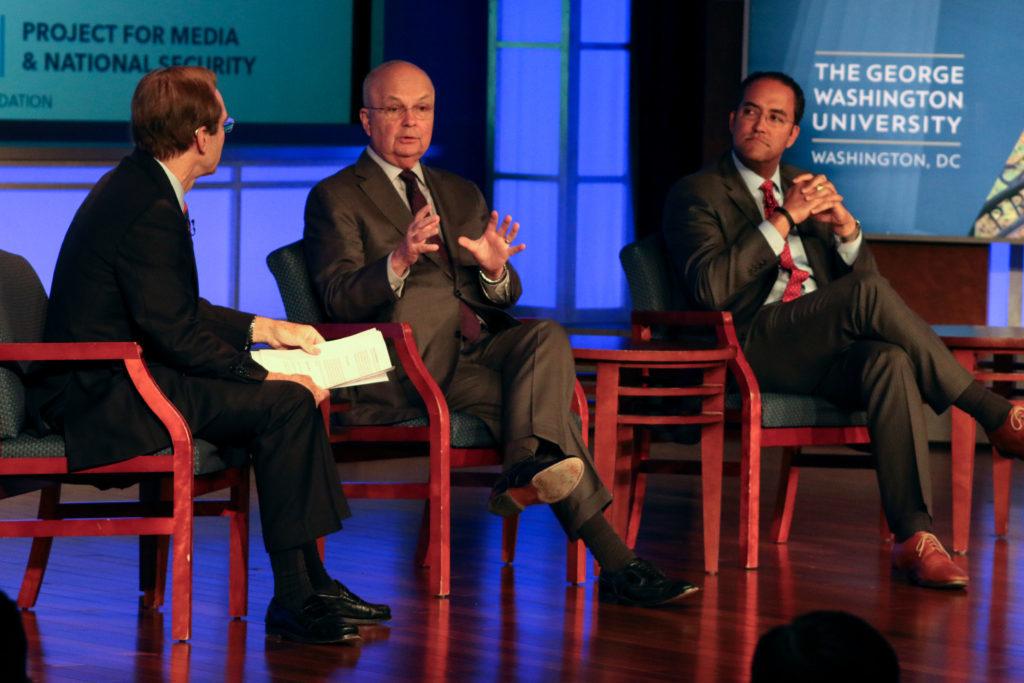National security experts, including a former director of the CIA, gathered in the Jack Morton Auditorium Tuesday to discuss cybersecurity reporting and policymaking at a time when the issue is under increasing scrutiny.
David Ensor, the director of the Project for Media and National Security, part of the School of Media and Public Affairs, moderated the hour-and-a-half-long discussion.
Sean Aday, an associate professor of media and public affairs and international affairs, introduced the event and said panelists would touch on how to understand and talk about cybersecurity issues, how to make policy and then how to “convey that policy to the public.”
“This is an issue that has really started to explode onto the news agenda,” he said.
Michael Hayden, a former director of the CIA and the National Security Agency, said the biggest challenge in creating cybersecurity policy is the lack of knowledge of the subject among government officials. The average age of members of Congress is 58, which poses a difficult learning curve for those who didn’t receive a computer science and technology education, he said.
“You have to understand how we can regulate and legislate outcomes, not specific kinds of technology,” he said.
The speakers agreed that the United States has not fully grasped digital warfare, making it difficult to respond automatically to cybersecurity issues.
NSA attorney Susan Hennessey said Congress “tends to not get it right” in national security litigation, giving security companies little regulation to follow when trying to make citizens safer.
“I think we are at a cybersecurity crisis point,” Hennessey said. “What we’re seeing is a new application of a classic market failure.”
The panelists then moved on to discuss potential upgrades to cyber regulation and how to better address these issues for the average citizen.
Rep. Will Hurd, R-Texas and a former CIA employee, said having a “cyber national guard” would encourage students pursuing computer science degrees to consider federal government work, allowing a “cross pollination” between public and private sectors.
The discussion then turned to members of the audience, who asked about recent cybersecurity court case decisions, possible solutions to cyber crimes and foreign espionage.
To end the conversation, the panelists were asked what steps could be taken to make future elections safer, especially after Russia’s interference in the 2016 election was focused on cyber activity, hacking and releasing emails, spreading fake news and creating spam propaganda social media accounts.
“Our federal structure is getting in the way of efficient action. We need an honest discussion between what the federal government knows and to have that dialogue with state and local officials,” Hurd said.
David Sanger, The New York Times’ chief Washington correspondent, said while there is disagreement about how well the news media covered last year’s campaign, there were instances of important investigative journalism.
“One of the big questions is at the end of this can journalists go back and look at coverage and see what worked and what didn’t and what we can replicate,” he said.





